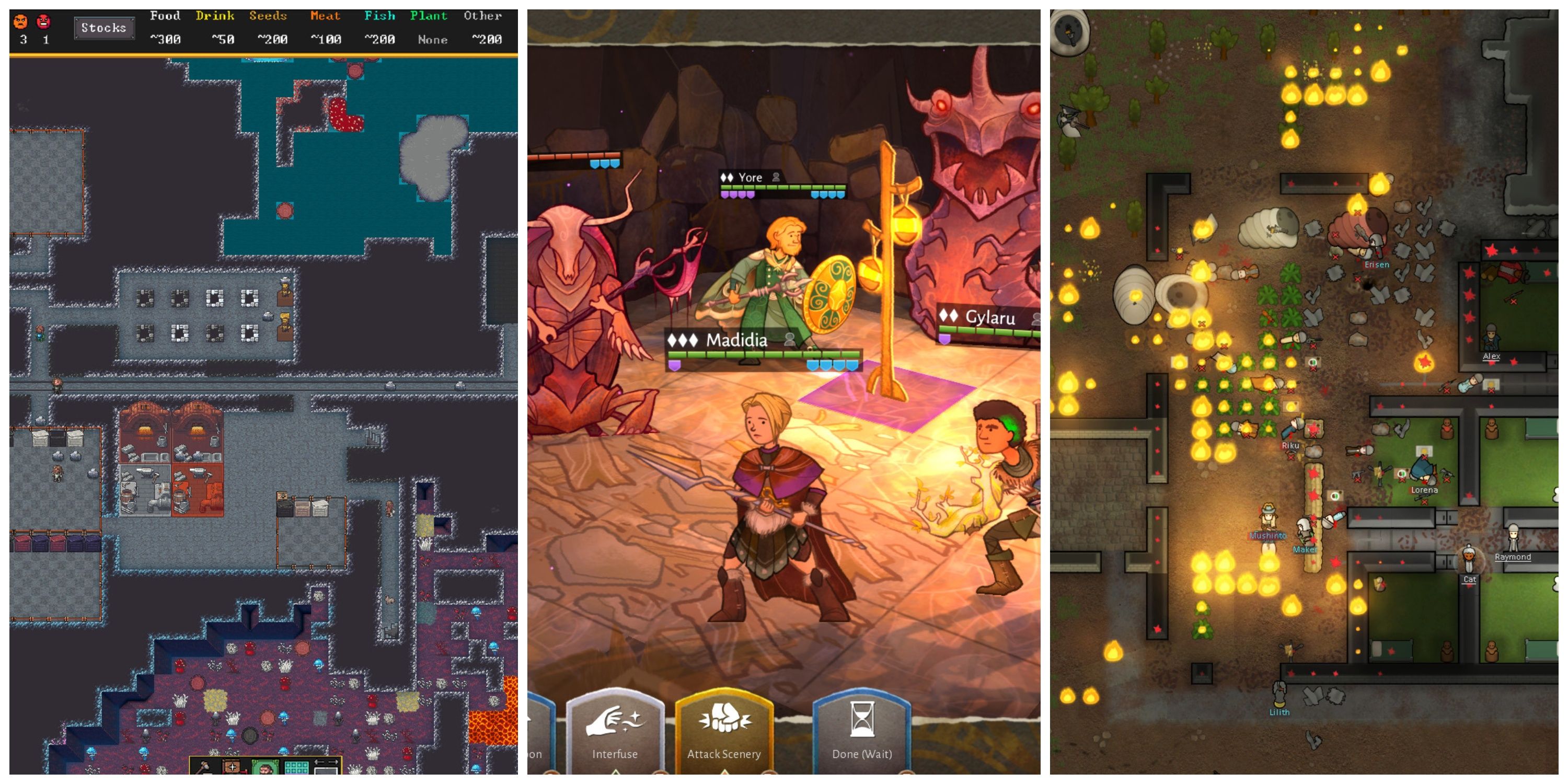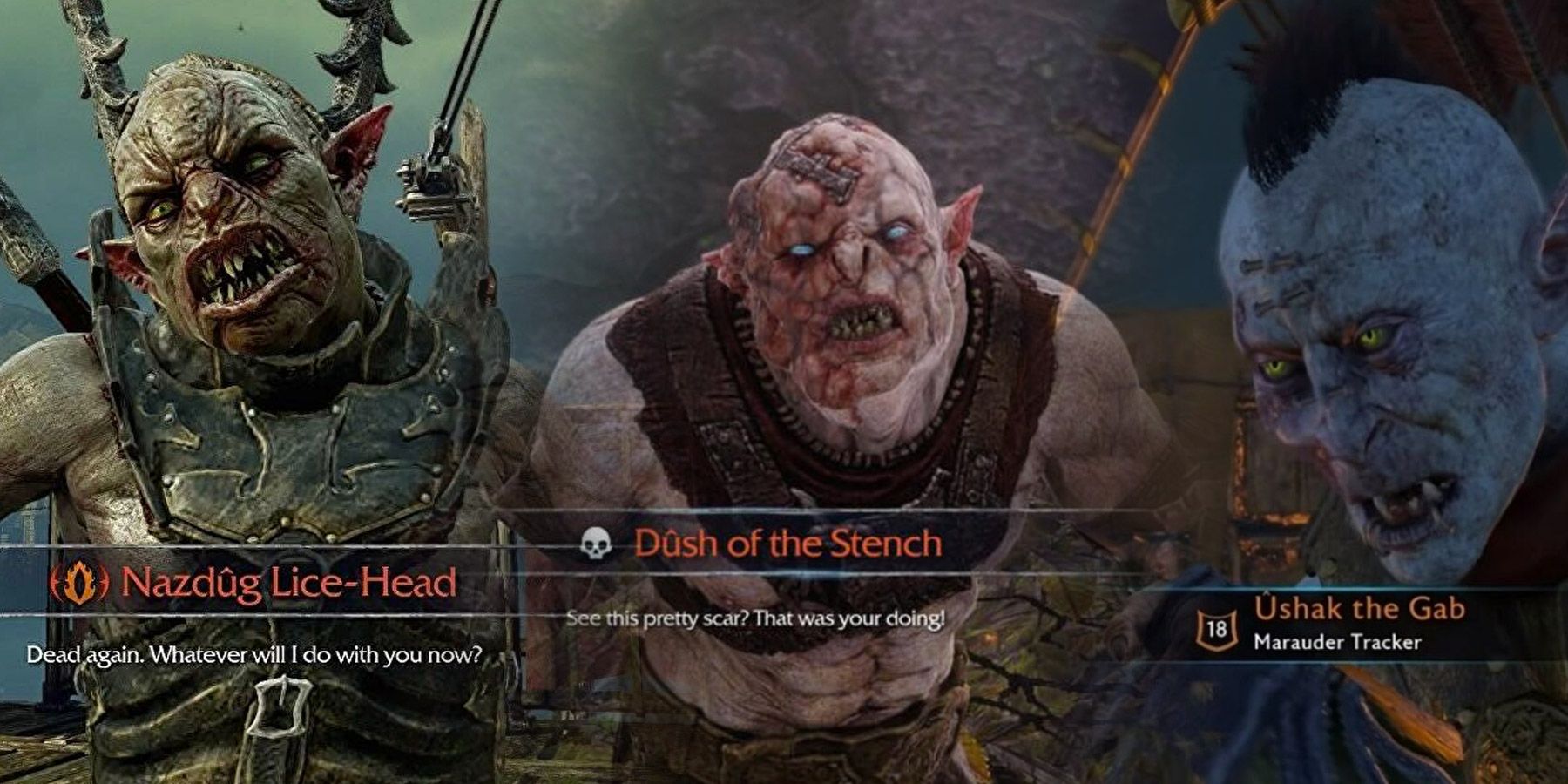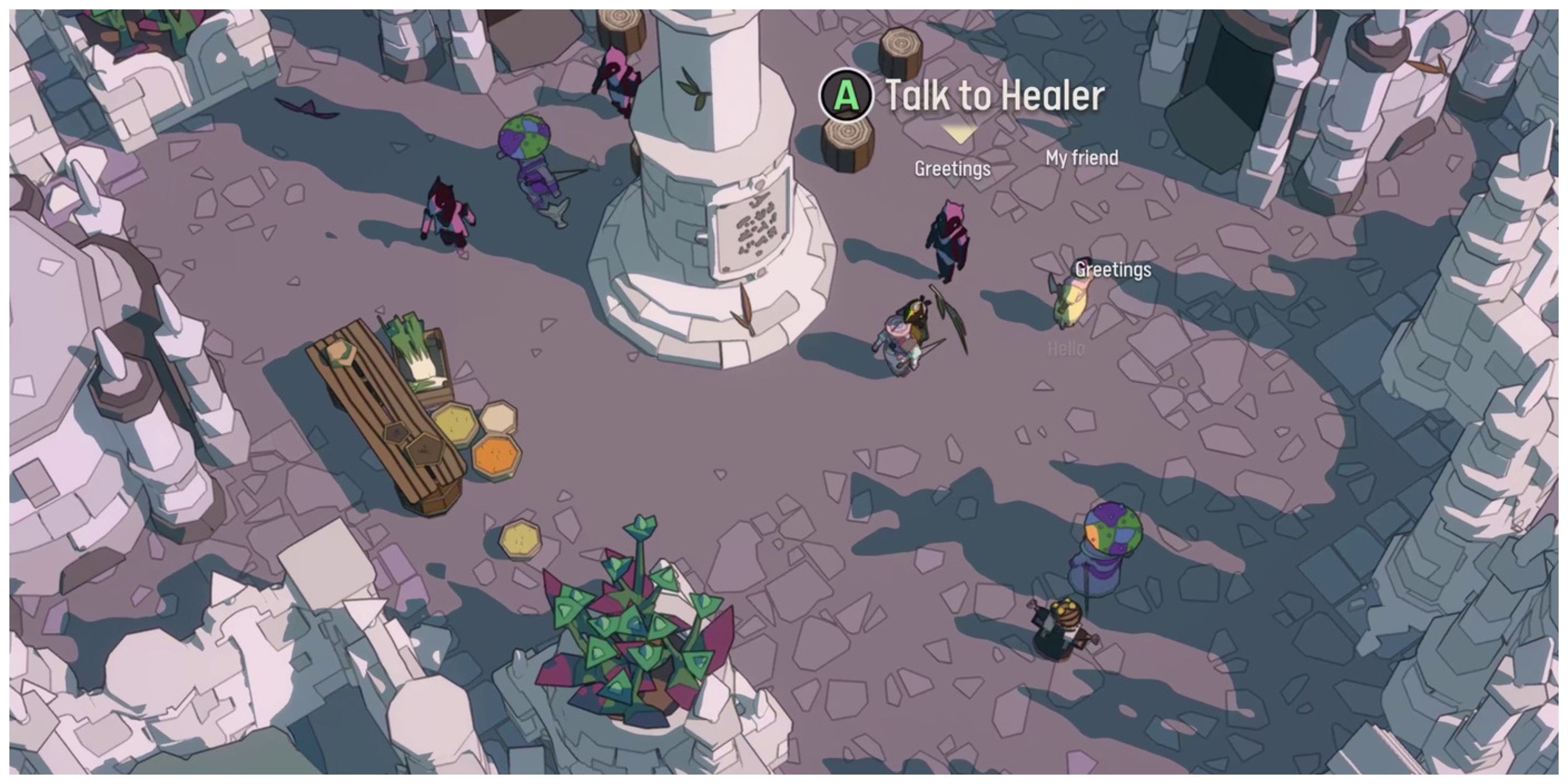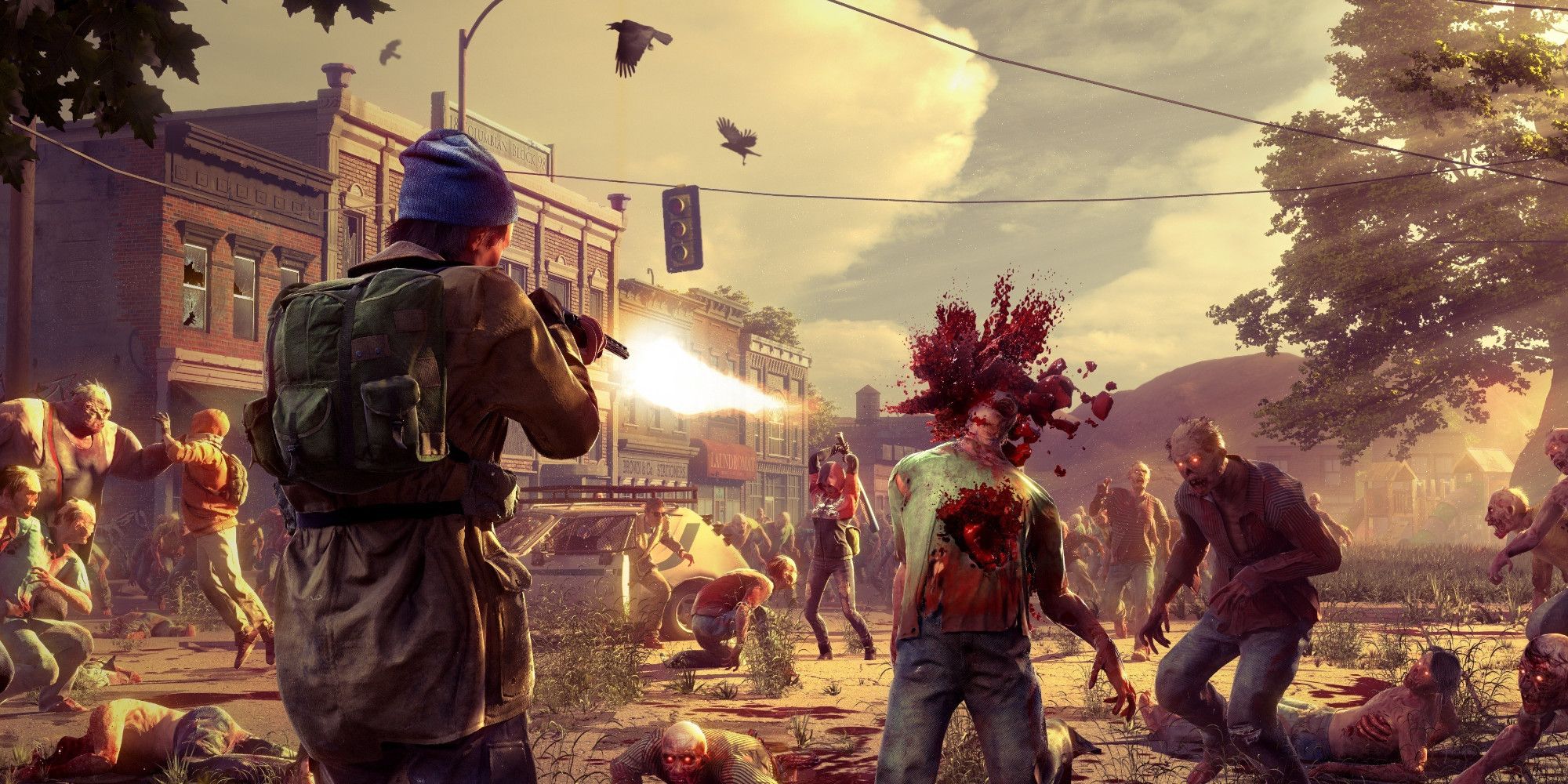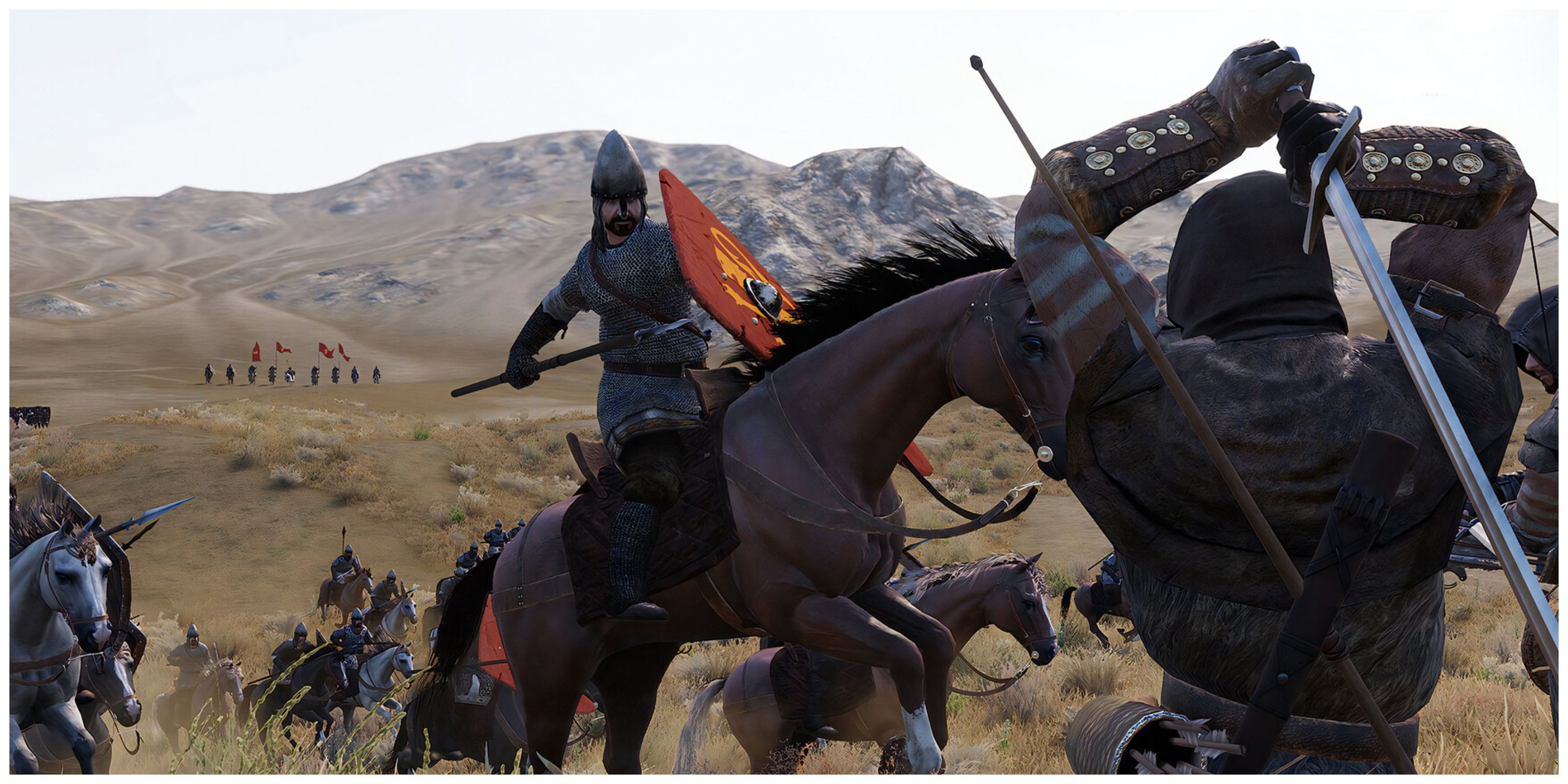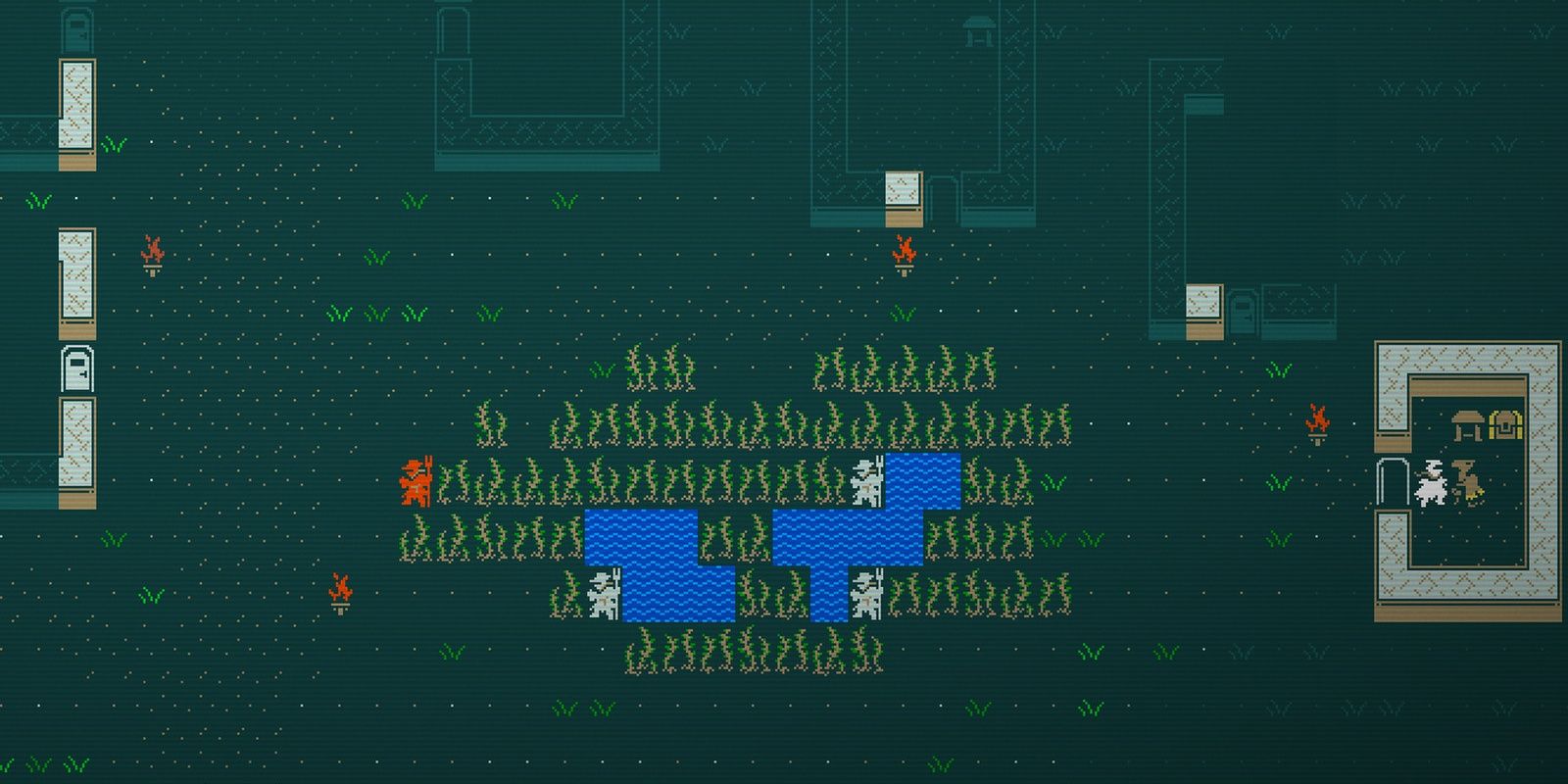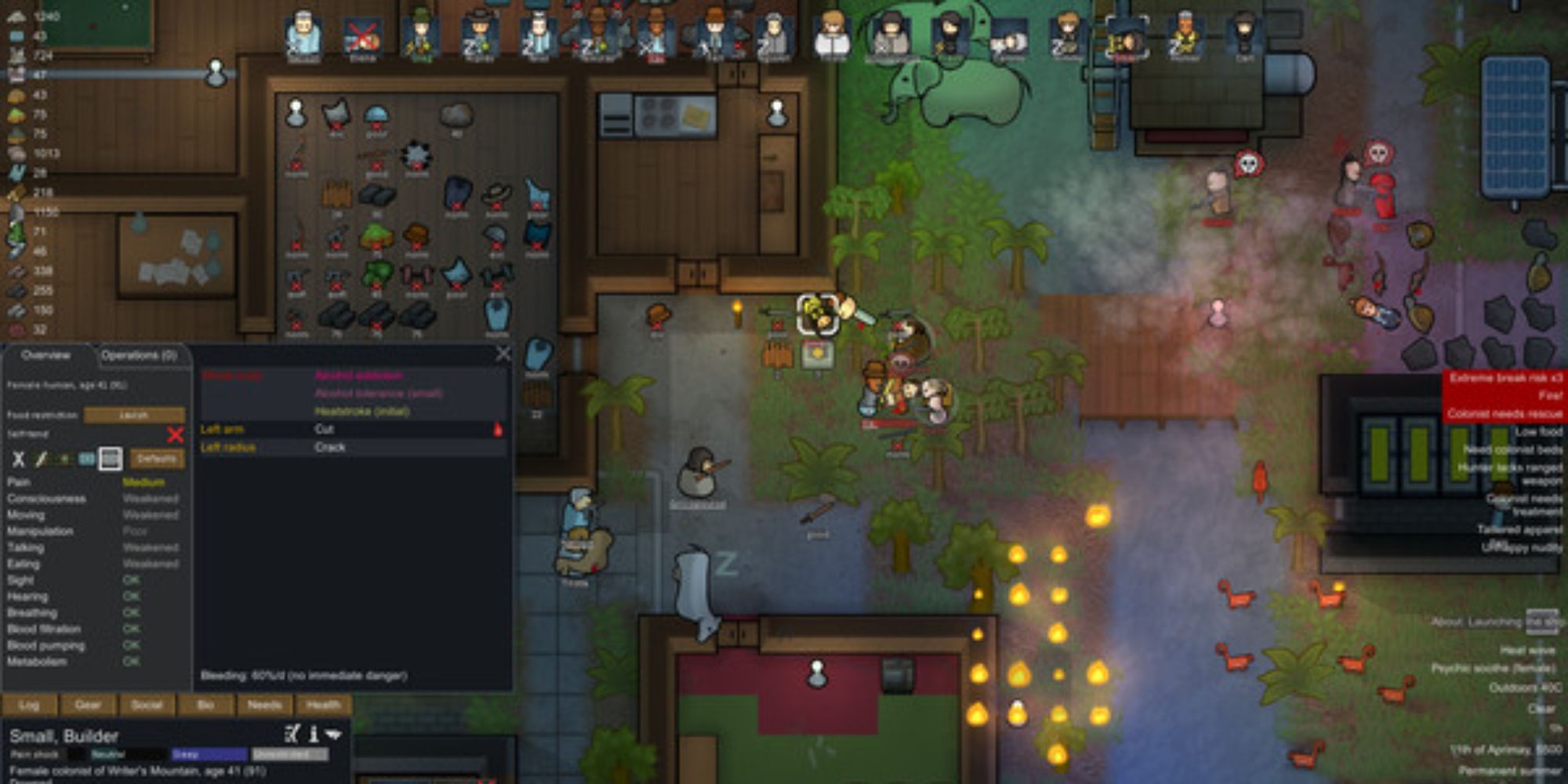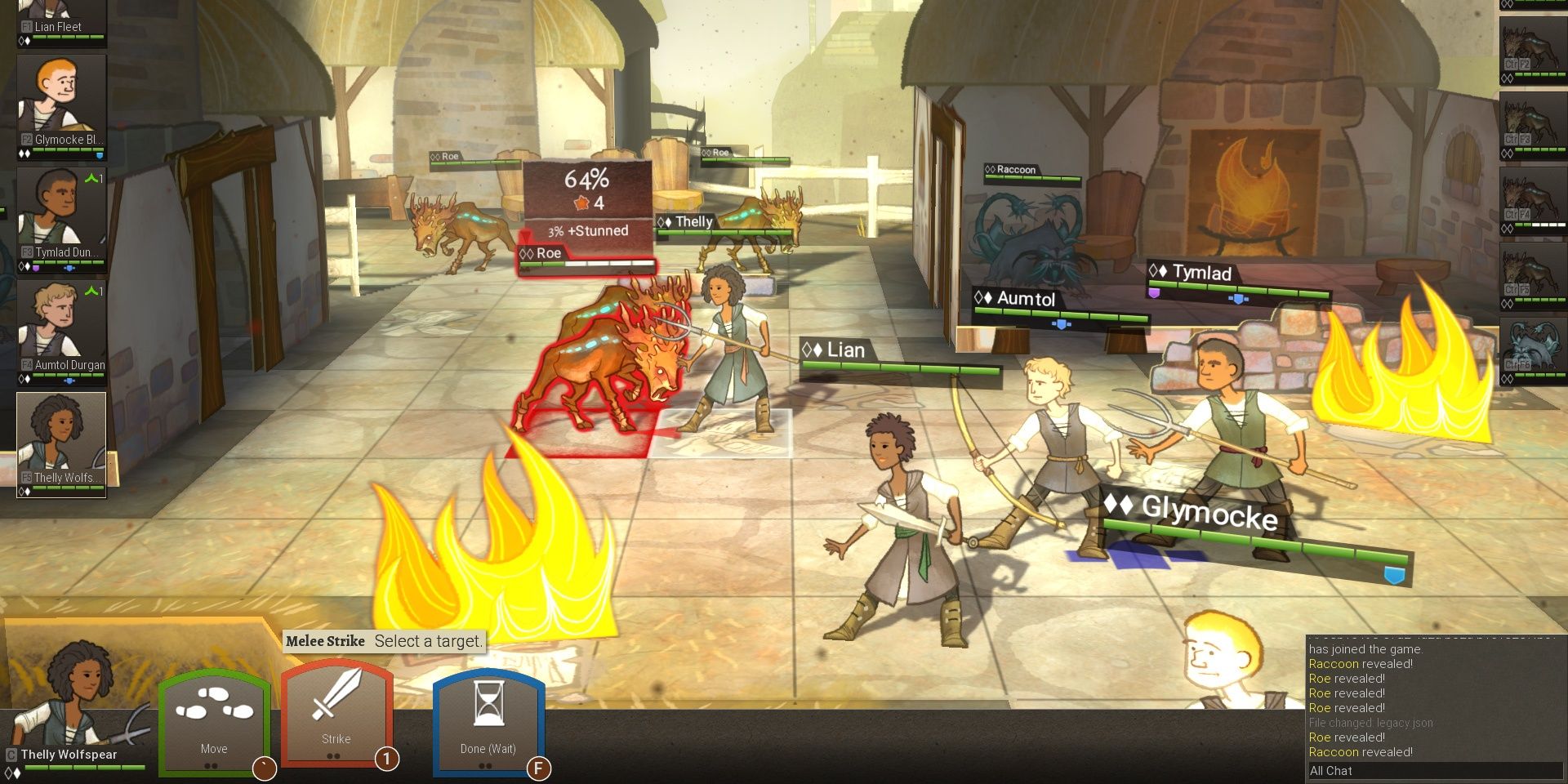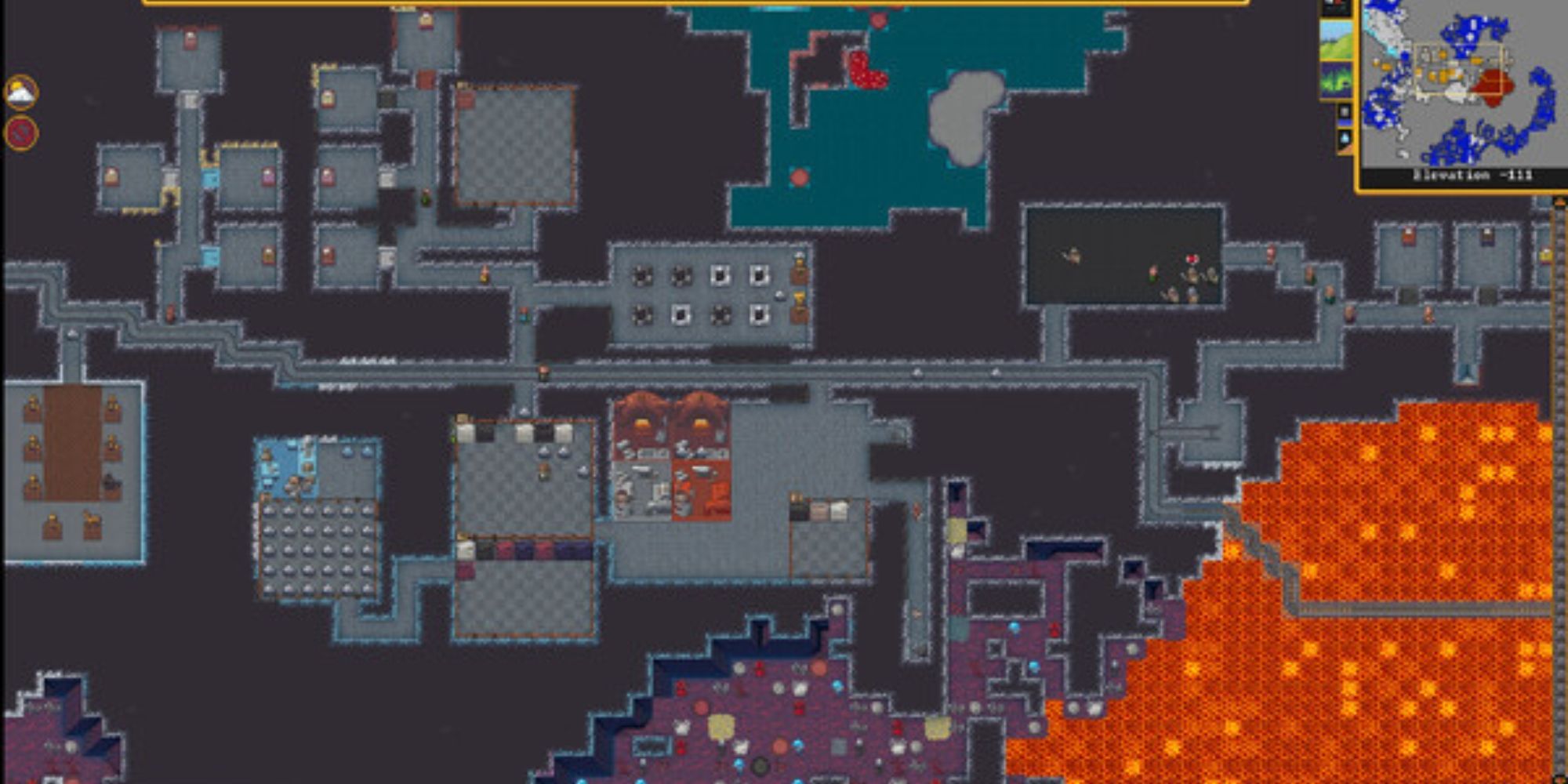Storytelling in games can take on many different forms. Some games choose to structure themselves around a linear narrative with cutscenes, like in the Uncharted games, while others lean on visual storytelling and in-game dialogue, like in Half-Life; other games include non-linear, branching narratives with multiple endings, as seen in Baldur's Gate 3.

10 Darkest Choices You Can Make in Telltale's Walking Dead Games
players will face some difficult decisions in Telltale's The Walking Dead games that could set a course for a dark fate.
Over the years, stories in games have become an increasingly integral part of their design, rounding out the experience and providing a clear-cut goal for players to work towards: finishing the narrative. However, some games simply aren't suited to scripted narratives; instead, they incorporate various mechanics and systems that encourage emergent gameplay and generate organic stories.
10 Middle-earth: Shadow Of Mordor
There have been many games set in Tolkien's lovingly crafted Middle-earth, but Middle-earth: Shadow Of Mordor stands out above the rest with its innovative Nemesis System that organically generates unique adversaries for players to hunt down and defeat.
This Nemesis System is at the core of Shadow Of Mordor's gameplay loop and is part of what makes it such an enjoyable experience. Shadow Of Mordor is primarily an action RPG, but the most memorable parts of the game are arguably not its scripted narrative but the organic, non-scripted events that unfold when players are fighting their own, distinct arch-enemy.
9 Watch Dogs: Legion
This third game in the Watch Dogs series takes place in a near-future London and, as always, puts players in the shoes of a hacker. However, unlike the previous games, Watch Dogs: Legion doesn't have a set protagonist; instead, it allows players to take control of NPC civilians and recruit them for their team.
Because of this, each player in Watch Dogs: Legion generates their own organic stories as they play, with their own unique team of hackers to progress through the game with. There are several different types of characters with their own unique strengths and weaknesses, and the game's immersive-sim approach to missions gives players plenty of options to do things their own way, further adding to the game's organic story generation.
8 Unexplored 2: The Wayfarer's Legacy
This open-world RPG roguelite sets itself apart with its procedurally generated fantasy worlds and striking, unique art style. Unexplored 2: The Wayfarer's Legacy features a simple narrative that's highly reminiscent of The Lord Of The Rings, tasking players with transporting a magical item to a faraway place, where it can be destroyed.
However, the game's procedural generation and free-form structure is full of emergent gameplay that doesn't railroad the player. Unexplored 2 also features a legacy system that remembers what players did after they die, allowing gamers to continue playing in that world as a new character while retaining some form of progression.
7 State Of Decay 2
Zombie survival games are arguably the perfect genre for organic storytelling due to their nature; they often give players a large amount of freedom, forcing them into tough situations in order to gather resources and survive. This can generate some interesting player-driven stories in of itself.

12 Best Zombie Games Ever, Ranked
There is no shortage of zombie games for both console and PC — some of them amazing, and some not so much.
State Of Decay 2 builds itself around organic storytelling with its open world, base management, and gameplay loop focused on supply runs in a dangerous, often lethal world. Because characters are randomly generated and can become important to the survival of the player's community, especially if they survive long enough to become stronger, losing them permanently on a supply run gone wrong becomes a dramatic story. There are plenty of moments like this in State Of Decay 2, so for fans of zombie games, it's a must-play.
6 Project Zomboid
As one of the first games to enter Steam's Early Access program, Project Zomboid has been around for a long time, constantly being updated and improved upon. Now, Project Zomboid is one of the best zombie games on the market, with its simulation-heavy mechanics and immersive, intense gameplay.
Because Project Zomboid gives players their own customizable character and lets them loose in one of the game's various locations with no set narrative, it heavily encourages role-playing. Furthermore, organic events happen all the time in Project Zomboid due to a gameplay loop, forcing players to keep moving while attempting to avoid danger.
5 Mount & Blade 2: Bannerlord
This sequel to the wildly popular Mount & Blade: Warband is a medieval life-sim and strategy-action RPG with a focus on large-scale battles and warfare, in which players can lead their own armies and fight with them in real-time.
Mount & Blade 2: Bannerlord players create their own character, choose their own background, and are let loose into the game's detailed open world to establish their own clan. Mount & Blade 2: Bannerlord's world is a sandbox of opportunities for organic storytelling, in which every playthrough can be dramatically different, and due to the game's lack of hand-holding and direction, it never forces players down a set path, encouraging them to make their own decisions and generate their own stories.
4 Caves Of Qud
Although Caves Of Qud has scripted quests and set locations, the game's titular caves and the wilderness are procedurally generated. The game even features procedurally generated histories and even randomly generated literature.
Caves of Qud features character creation similar to that found in tabletop RPGs and heavily encourages role-playing. Due to the procedural nature of the game's world, players can even come across randomly generated ruins and settlements that, when explored, provide the perfect foundation for organic stories. While gameplay isn't always action-packed, the sheer amount of variables in Caves Of Qud often has players finishing a playthrough with a story to tell, even if it's just the horrific way that their character died.
3 RimWorld
This colony simulator takes heavy inspiration from games like Dwarf Fortress and puts it in a more accessible and simplified package, set in a science fiction world inspired by the likes of television shows like Firefly.
RimWorld even features "AI Storytellers" that provide different experiences. "Randy Random," for example, will do as his name suggests and bombard the player with completely random events. On the other hand, "Cassandra Classic" provides a curated difficulty curve designed to build tension throughout a playthrough. Due to the heavy amount of procedural generation in RimWorld and the encouragement of self-set player goals, RimWorld is a powerhouse of emergent gameplay and organic stories.
2 Wildermyth
This RPG heavily inspired by pen-and-paper tabletop games features tactical turn-based combat interspersed with randomly generated story events in which players are tasked with making meaningful decisions for their distinct, unique heroes.
Each playthrough of Wildermyth is completely unique and offers plenty of opportunities for organic storytelling, thanks to its randomly generated events and the roster of characters that players can build each time they play. Every character in Wildermyth has their own randomly generated history, personality, and visuals that represent them as a whole.
1 Dwarf Fortress
This age-old game was previously inaccessible to many due to its ASCII graphics and awkward keyboard controls, but regardless of those flaws, it's been entertaining hardcore fans for years due to its potential for organic storytelling. Dwarf Fortress is a colony-sim/management game in which players oversee a colony of randomly generated dwarves in a procedurally generated world, but they have no direct control over their dwarves. Instead, each generated dwarf acts according to their own distinct traits and histories, making each member of the colony a unique and unpredictable cog that's bound to do something memorable somewhere down the line.
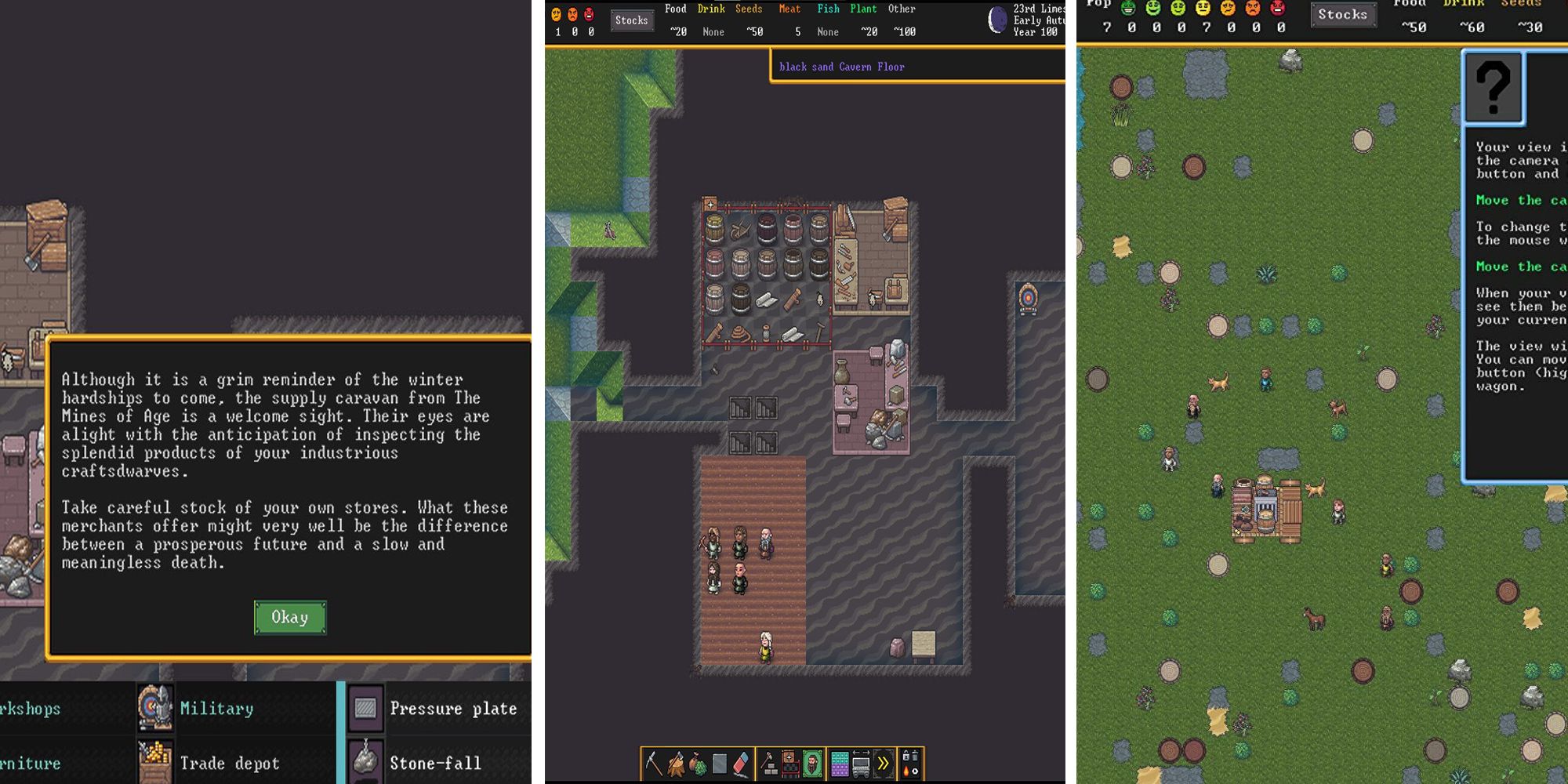
10 Beginner Tips: Dwarf Fortress
Even though losing is fun, players can follow these tips to have a more enjoyable experience in Dwarf Fortress!
Dwarf Fortress has long been known for its organic stories created through a combination of clever systems and procedural generation that encourages players to role-play and makes each playthrough memorable.

